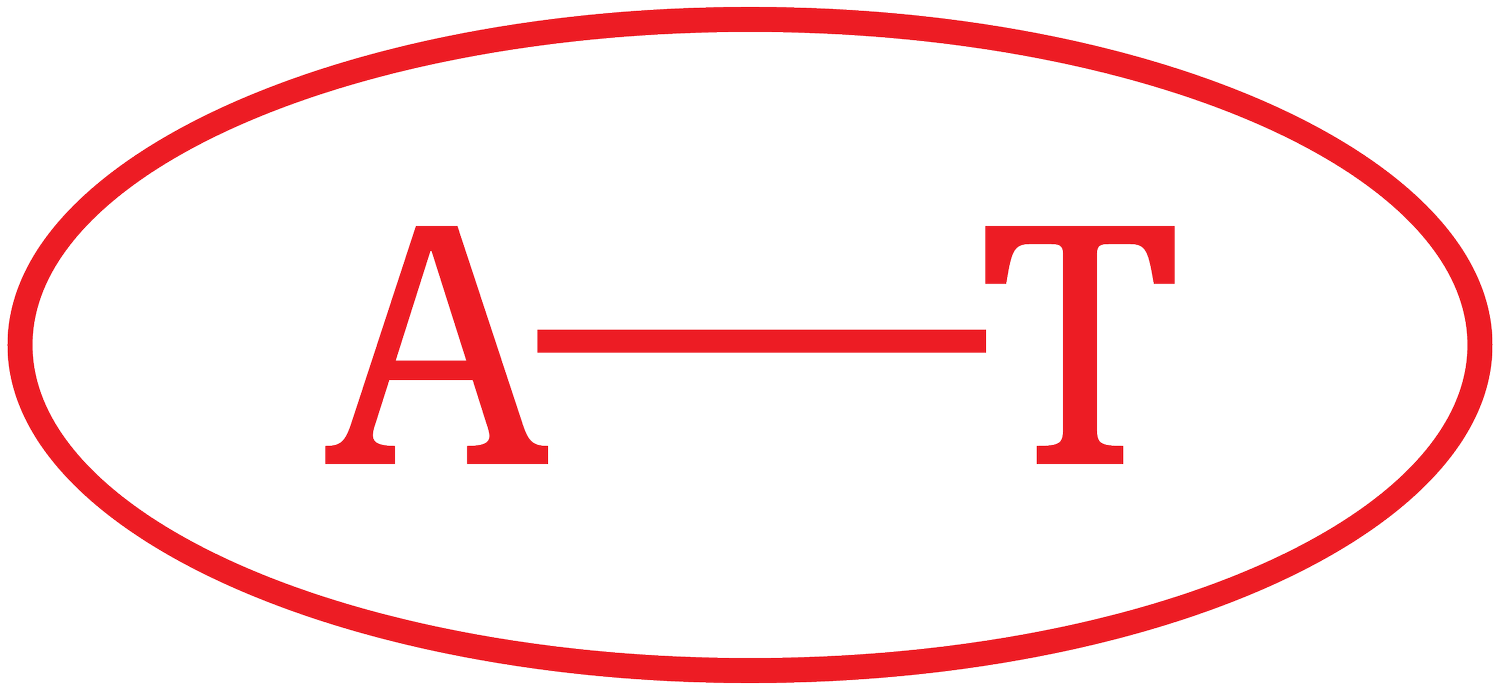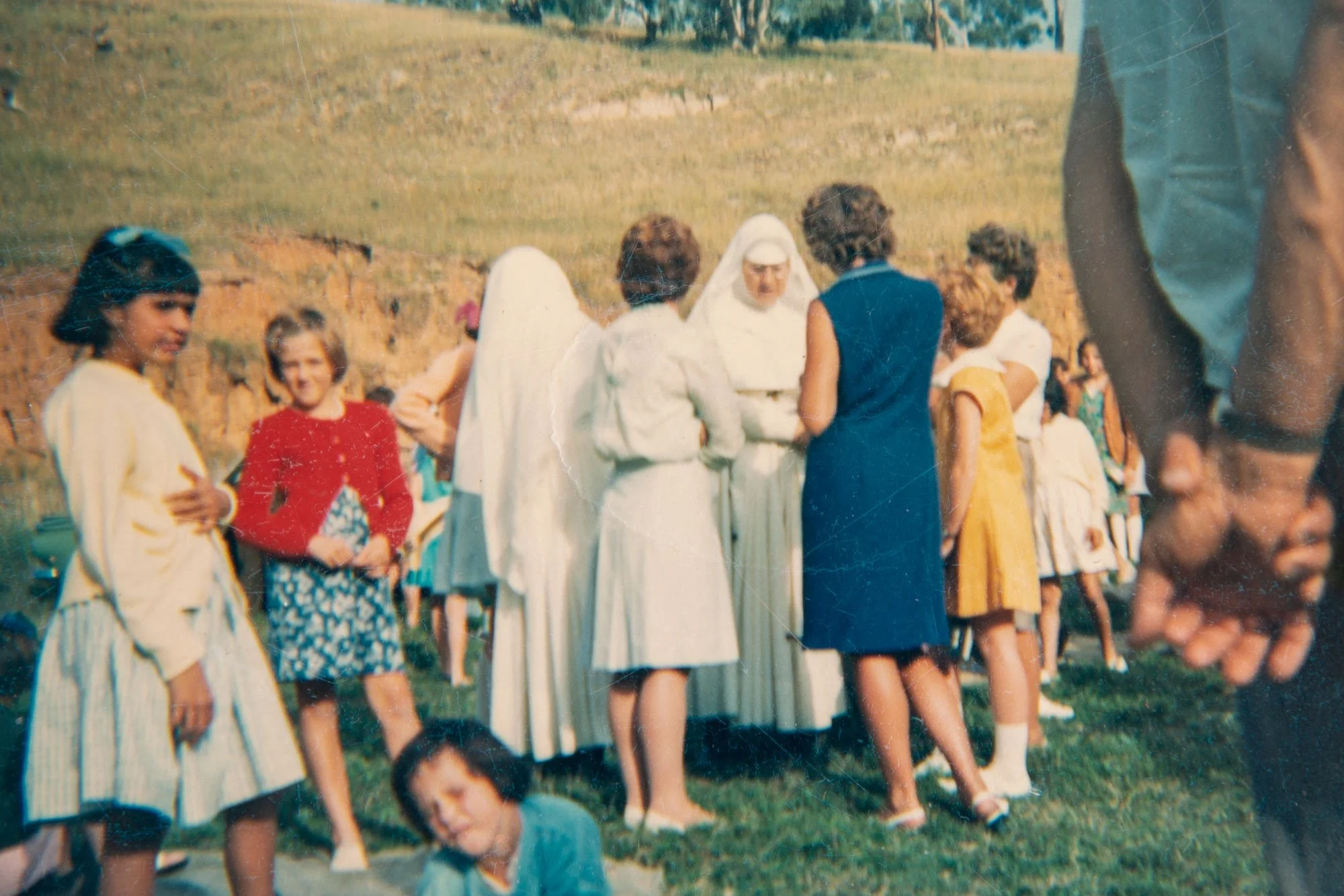This StoryBank is best viewed on a laptop or desktop computer. You may browse it on your tablet or mobile, however, we recommend switching screens for the best experience.
ReConnect Bathurst:
Aunty Shirley Scott and Aunty Sandra Peckham
Aunty Shirley Scott and Aunty Sandra Peckham are twin sisters, they were interviewed together and so their StoryBanks are presented toegther.
Before you engage with this story, please be advised that it mentions child sexual abuse.
AUNTY SHIRLEY SCOTT:
My mum was an Aboriginal woman that lived off the mission. I remember when we were 5 years old living on Talbargar Mission when the floods were happening in 1955. We were evacuated to the showground in Dubbo. When the government came, mum and us kids fled to Billimari Aboriginal Camp.
AUNTY SHIRLEY SCOTT:
I remember swimming in the river at Billimari and these fullas in suits came and got us out of the river. They took us back to the police station, where they asked a lot of questions and then we went to court.
I don’t remember going to court, and we were made Wards of the State until we were 18 years old.
Listen as Aunty Sandra and Aunty Shirley speak about what happened the day they were taken into care:
AUNTY SHIRLEY SCOTT:
My father was a drover, and my mum and dad had separated when we were young. Back in those days, they didn’t let little girls live with their fathers.
When we were taken. We weren’t in any danger with our mum, but after that day we never saw her again, not even to say goodbye.
I remember being sent to a home run by the Salvation Army. We were there for a bit, I think my father jumped up and down and said “you know they’re Catholics, I don’t want them here”, the next thing you know we are at St Joseph’s Orphanage in Bathurst. We stayed there until we were 15 and then they sent us out to work.
AUNTY SHIRLEY SCOTT:
We didn’t have good schooling because we were orphans. They more or less sent us outside to sweep out the verandas, and on Saturdays, we had to clean the dormitories. We were on our hands and knees with bobby pins getting the fluff out of the floorboards.
The only day we had to play as kids was Sundays.
AUNTY SHIRLEY SCOTT:
I remember when we were young, we had an older girl looking after us. When we got old enough, around 10 -11 years old, we had to look after the younger ones.
We would have to make their beds and wash their sheets in cold water. I used to get sores on my hands from the cold water. We would get them ready for school and walk them there every morning.
Listen as Aunty Sandra and Aunty Shirley speak about some of the horrible things they endured during their childhood:
AUNTY SHIRLEY SCOTT:
We used to go to church every day and twice on Sundays.
Up at 6 am six days a week and 6 am on Sundays.
AUNTY SHIRLEY SCOTT:
We didn’t own any toys as children.
We used to get sticks and make bows and arrows and we would play shop with rocks and things we found. I think that’s why we give our kids so much.
AUNTY SHIRLEY SCOTT:
We didn’t know how old we were until we were 14.
We didn’t have birthdays.
We didn’t celebrate birthdays.
It’s funny, the only birthday that was acknowledged was our 14th, this was because they could then send us out to work.
Listen as Aunty Sandra and Aunty Shirley speak about a recent camp they organised and some of the heart-breaking realties of growing up in an orphanage:
AUNTY SHIRLEY SCOTT:
Years later police were investigating incidents that took place at St Stanislaus College, and I (Shirley) was contacted by police and was interviewed regarding sexual assault allegations that took place the 1950s-1960s.
During the police interviews, my memories were triggered of the events that took place during my childhood. I remember having nightmares when it happened and I didn’t tell any of the other kids.
I remember the feelings of not being heard after I told the nun what had happened. I recall being interviewed by the head priest, and remember him saying “don’t tell anyone, this will be our little secret, where’ve got feeling like everyone else.“ I’ll remember that until the day I die.
After that interview, I remember that I was put on a plane and I was sent to Hay with an old lady on a farm until I was 15.
AUNTY SANDRA PECKHAM:
And then in 2001, we thought we’d have a reunion. So it took us 12 months, you know, I found one name. And once you find one name, all these names kept coming back. So those girls there, they became our sisters, because they knew everything. So when they came back, it was just like seeing your sister, you know, because they shared our childhood with us and vice versa.
And it was really, really good that we remembered. It made you remember.
AUNTY SANDRA PECKHAM:
As part of our healing journey, we obtained a copy of our welfare files.
Amongst the documents, it was stated that our mother was a “Mentally defective Aboriginal woman that did not have the capacity to care for her children”, and that we had low IQs. This was typical of welfare records back then.
We have both been to university, and we just laugh about it now.
AUNTY SANDRA PECKHAM:
Both of us work in the Community Services industry because we have a sense of compassion and responsibility of giving back to our communities.
We want to empower and guide our people and make them feel that someone is listening.
We understand how difficult life can be and the challenges it brings with it. There is nothing worse than feeling like you are alone when you need someone.
People get angry. I got angry when no one listened to me. This is why, because of my behaviour, I got sent to every girls home in the state and even a psychiatric ward while under the care of the orphanage.
Unspeakable acts were inflicted during that time to myself and many girls.
AUNTY SHIRLEY SCOTT:
We are well known in our community and give tirelessly to helping empower others.
Our family consists of myself, 4 children and 11 grandchildren. Sandra has 6 children, 22 grandchildren and 3 great-grandchildren.
We look back now and understand that trauma is a part of us, not the sum of us.
We’ve created new memories that bring us joy with our families. We have a good education, a great family and that’s what’s important.
This project is proudly funded through the State Government’s Local Government Social Cohesion Grant Program. ReConnect Bathurst is an And Then project delivered in partnership with Bathurst Regional Art Gallery.
Current: Aunty Shirley Scott and Aunty Sandra Peckham
Next: Mike Hardie
Uncle Bill Allen
Bev Cooney
Cheryl O’Brien
June Paton
Gus Gorton
Lonnie Edwards
Yvonne Morgan
Enn Muller
Jan Sheppard
Edgar Coello
Aunty Shirley Scott and Aunty Sandra Peckham
Mike Hardie
Frank Smith
Clive Brabham
Eddy Suttor
RECONNECT BATHURST PARTICIPANTS’ INDIVIDUAL STORYBANKS
PROJECT INFORMATION
WHEN
April – November 2022
WHERE
Bathurst, NSW
WHY
We believe that stories matter and that stories like those shared here hold power and significance.
The vision of the project is to use photo-storytelling and cultural preservation practices to develop social and creative connections and experiences with older people from the Bathurst area. This project celebrates the participants' lived experiences while encouraging dialogue around ageing, isolation and ageism.
Social-arts projects like this are important as they transform public spaces and help to build a sense of community. It’s been wonderful to reimagine Pedrottas Lane in Bathurst and to create an online representation of the physical exhibition with a project made with the community, for the community.
WHO
We were honoured to be invited by Bathurst Regional Art Gallery to create and facilitate ReConnect Bathurst.
16 older people from the Bathurst area. Many of the participants were nominated by local community organisations while others serendipitously came to be a part of the project. We’d like to thank The Bathurst Aboriginal Land Council, The Wiradjuri and Community Aboriginal Elders, The Neighbourhood Center, Bathurst Business Chamber, The Woodies, Bathurst RSL Sub Branch and the Country Women’s Association.
With special thanks to Dinawan Dyirribang (Uncle Bill Allen), Bev Cooney, Cheryl O’Brien, June Paton, Gus Gorton, Lonnie Edwards, Yvonne Morgan, Enn Muller, Frank Smith, Jan Shepard, Edgar Coello, Aunty Shirley Scott, Aunty Sandra Peckham, Mike Hardie, Clive Brabham and Eddy Suttor.
HOW
Our stories are a wonderful connection point. It’s through sharing them with each other that we make space for conversations that can inspire, that can expand our understanding and in some cases, leave us changed.
During this project, we spent time with each person, we talked, reflected on old photographs, made images together and worked through various ways of co-authoring. Socially-engaged practice empowers participants to participate in the creation of their stories, allowing them to represent themselves in the way that they choose.
We often leave a camera with participants and invite them to engage in their own image-making. There’s something raw and revealing about the images made this way, about seeing the world through the participants' eyes.
AND THEN
Through their stories, we see facets of vast lives lived. We witness the snapshots and threads that when woven together create a rich tapestry. Our hope is that as stories wash over us we’re able to make space to contemplate connection and the beauty of community.
This project is proudly funded through the State Government’s Local Government Social Cohesion Grant Program. ReConnect Bathurst is an And Then project delivered in partnership with Bathurst Regional Art Gallery.

















































